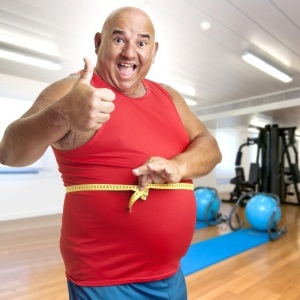
Overweight patients with risk factors for heart disease should be sent by their doctors for "intensive behavioural counselling" about diet or exercise, according to new recommendations from the United States Preventive Services Task Force (USPSTF).
Intensive behavioural counselling
That includes overweight people with high blood pressure, high cholesterol, "metabolic syndrome" or blood sugar levels higher than normal and on the cusp of type 2 diabetes.
A literature review commissioned for the government-backed USPSTF, published in the Annals of Internal Medicine, found that intensive behavioural counselling can help lower these patients' risk for heart problems.
Read: Natural approach to heart problems
"My message for patients would be that we have the ability by changing our behaviour to modify our risk for heart disease and stroke and your doctors can help you do that," Dr. Michael L. LeFevre, the chair of the Task Force, told Reuters Health by phone.
LeFevre is also vice chair in the Department of Family and Community Medicine at the University of Missouri School of Medicine in Columbia.
The recommendations are targeted to health care providers more than to patients, LeFevre said.
To patients, he says, "The most important thing that we can do right now is have you lose some weight, be more active but just offering that advice and giving you a pamphlet, we don't really find any evidence that that's helpful."
Health markers improved
Instead, the Task Force review found, intensive behavioural counselling – involving multiple sessions with experts in nutrition and exercise over an extended period, for several months to a year – can help people lose weight and bring down their blood pressure and cholesterol.
The researchers reviewed 74 studies of various lifestyle interventions and found that with intensive counseling, many health markers were improved one and two years later, and the risk of diabetes decreased.
Read: Obesity counselling for the brain works best
"This crystalises 25 years of research and a huge number of studies but I don't think this is new or earth shattering information," said Dr. Jennifer S. Lin of the Kaiser Permanente Centre for Health Research in Portland Oregon.
Lin was the lead author of the literature review.
There is a great deal of data on people with heart attack and stroke risk factors and most of those studies focused on a combination of diet and exercise counselling, so those kinds of programmes have the most evidence behind them at this point, she said.
Modest benefit
"On average we're talking about a few milligrams of cholesterol per decilitre of blood or a couple of millimetres of Mercury decrease in blood pressure," Lin told Reuters Health by phone.
"We're calling that a modest benefit applied to a population but even these modest benefits translate into health outcomes that patients can actually feel," she said.
Patients can't necessarily feel when their blood pressure goes down, but they can feel if they do or do not have a heart attack, she said.
The best counselling interventions are not only frequent but conducted by trained dieticians, nutritionists, health educators and physiologists, she said.
Read: Dieticians to the rescue
"They're more than just didactic, more than classroom based interventions, they're individualized," she said.
One-on-one counselling gives experts time to assess the barriers to healthy diet and exercise for each person and help them overcome them, LeFevre said.
Time, skills and resources
"We need to see people repeatedly, to work with them and reinforce what's going on," LeFevre said.
The USPSTF issued the same recommendation for the first time in 2012, but only for obese patients without heart disease risk factors.
While family physicians could provide these counseling services themselves, most of the programmes studied involved referrals to experts in the same office or elsewhere in the community, he said.
"To be perfectly honest, a rate limiting step for implementation of this guideline is that there are a lot of doctors out there but (they) don't really have the time or skills to do this themselves, or the resources," LeFevre said.
Even sending patients to other experts means finding those people and coordinating care with nutrition and exercise programmes and checking in periodically to see how things are going, he said.
Not paid for by health system
Right now, larger health organizations like Kaiser Permanente in California or Group Health in Washington are most likely to be able to do this, he said. For doctors outside large health systems, it is much easier to order a blood test or write a prescription than coordinate long-term behavioural counselling, he said.
"It's problematic that this kind of care is generally not paid for by the U.S health system," Lin said. "Those resources should be made more available."
There are commercial diet and exercise programs which are legitimate and good at what they do but the patient needs to pay out of pocket, she said.
"Many primary care physicians and many patients would not have access to these types of interventions," she said.
SOURCE: http://bit.ly/1i46lF7 Annals of Internal Medicine, August 25, 2014.
Read more:
Is being overweight or obese dangerous?
Weight counselling decreases despite rise in obesity
Exercise eases depression in obese
Image: Large man from Shutterstock




 Publications
Publications
 Partners
Partners











